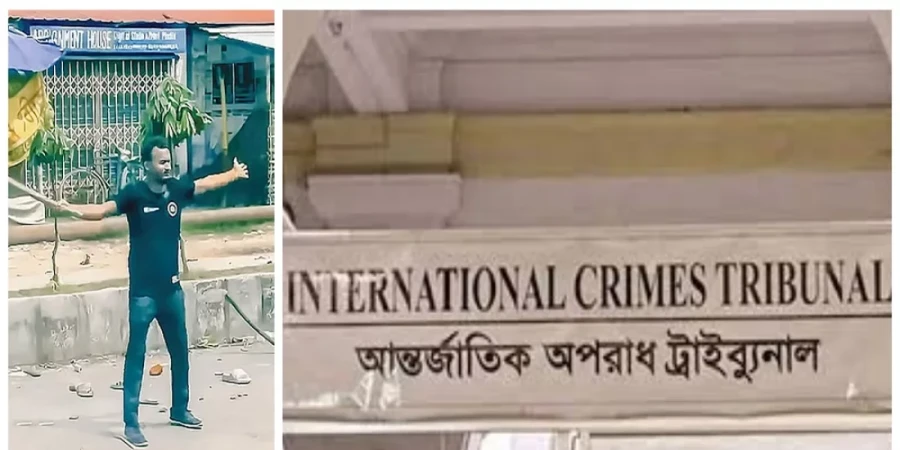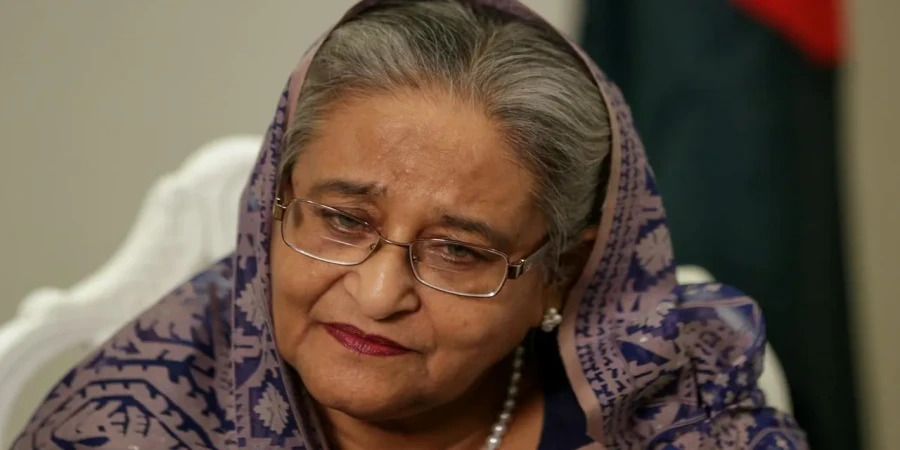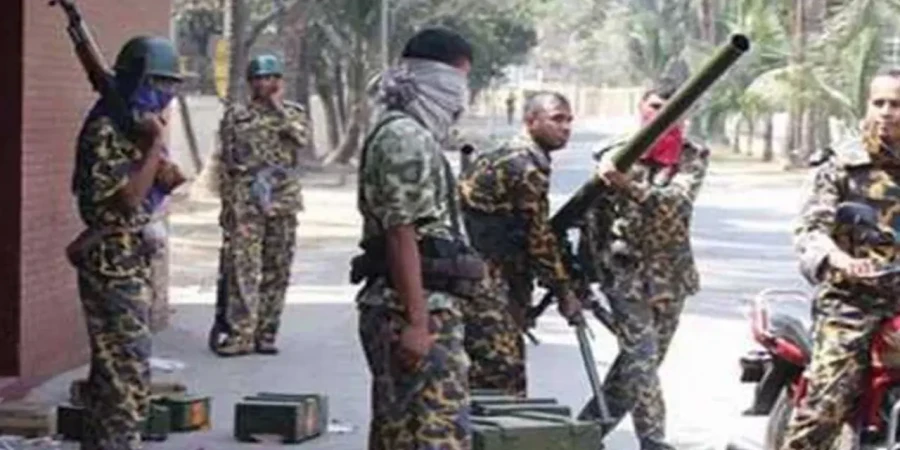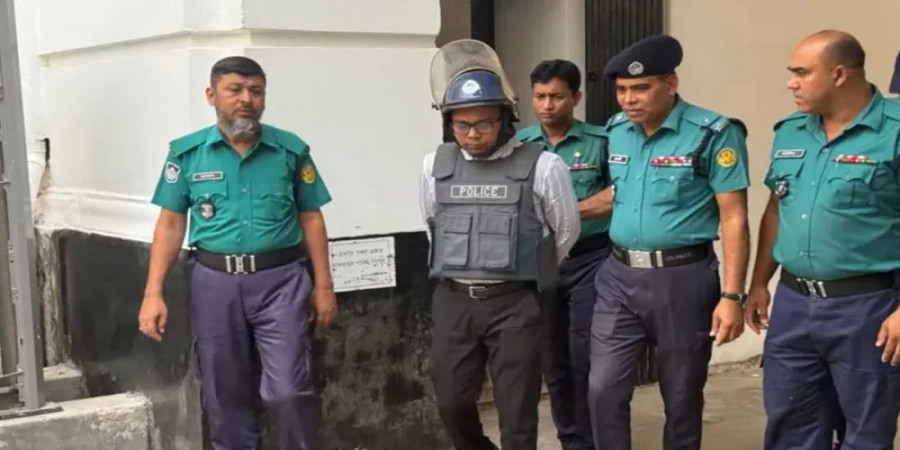
ছবি: Photo: Collected
Ex-police officers, university proctor, and student leader face tribunal in connection with fatal shooting during 2022 student uprising at Begum Rokeya University.
Four individuals accused of involvement in the murder of Abu Sayeed, a student at Begum Rokeya University in Rangpur, were brought before the International Crimes Tribunal on Sunday morning. The case relates to the killing that took place during a student uprising against discrimination in July 2022.
The accused — former Sub-Inspector Amir Hossain, police constable Sujan Chandra Roy, university proctor Shariful Islam, and ruling student wing leader Imran Chowdhury Akash — were transported to the tribunal in a prison van and presented before the bench led by Justice Md. Golam Mortuza Mojumder, the chairman of the International Crimes Tribunal.
The tribunal had earlier ordered the production of the accused before the court in a directive issued on April 9. In that order, the tribunal also instructed the prosecution to submit the final investigation report by June 15. Prosecutors confirmed that the hearing would proceed as per schedule, with the submission of evidence and witness testimonies to follow in subsequent sessions.
Abu Sayeed, a university student actively involved in a student movement protesting systemic inequality, was fatally shot during a demonstration in July 2022. According to the findings of the ongoing investigation, former Sub-Inspector Amir Hossain and constable Sujan Chandra Roy directly opened fire during the protest, resulting in Sayeed’s death.
The probe has also revealed that the incident did not occur spontaneously but was allegedly influenced by a network of individuals within the university administration and affiliated political organizations. Investigators have pointed to Proctor Shariful Islam and student leader Imran Chowdhury Akash as key figures who instigated and facilitated the deadly crackdown on student protestors. Their roles are being further scrutinized as more evidence is gathered.
The protest movement of 2022, which began as a peaceful demonstration against academic and social discrimination on campus, quickly escalated into a larger student uprising when law enforcement intervened forcefully. Abu Sayeed's death became a flashpoint in the protest, leading to nationwide condemnation and calls for justice from student groups, rights activists, and civil society.
The International Crimes Tribunal, which typically tries crimes related to the 1971 Liberation War, took on this high-profile case due to the grave nature of the charges and the involvement of state officials. Legal experts have noted the unusual jurisdictional scope of the tribunal in this instance, but the government has justified the move citing the systemic abuse of power and breach of international human rights principles.
Family members of Abu Sayeed were present outside the tribunal during Sunday’s proceedings. They expressed cautious optimism, saying they hoped the court would ensure accountability for what they called “a cold-blooded execution of a voice for justice.”
The defense team representing the four accused has so far declined to comment in detail, but has hinted at contesting the admissibility of the case before the tribunal, arguing procedural anomalies and jurisdictional overreach.
As the investigation nears completion and the tribunal prepares for formal hearings, legal observers expect the case to set a precedent in addressing alleged abuses by law enforcement and political elements within academic institutions. The tribunal has announced that the next session will include a review of preliminary witness accounts and forensic analysis.
This case, unfolding nearly three years after the fatal shooting, continues to stir public attention, not only for its political ramifications but also for its potential to redefine accountability standards for institutional violence in Bangladesh.
repoter





